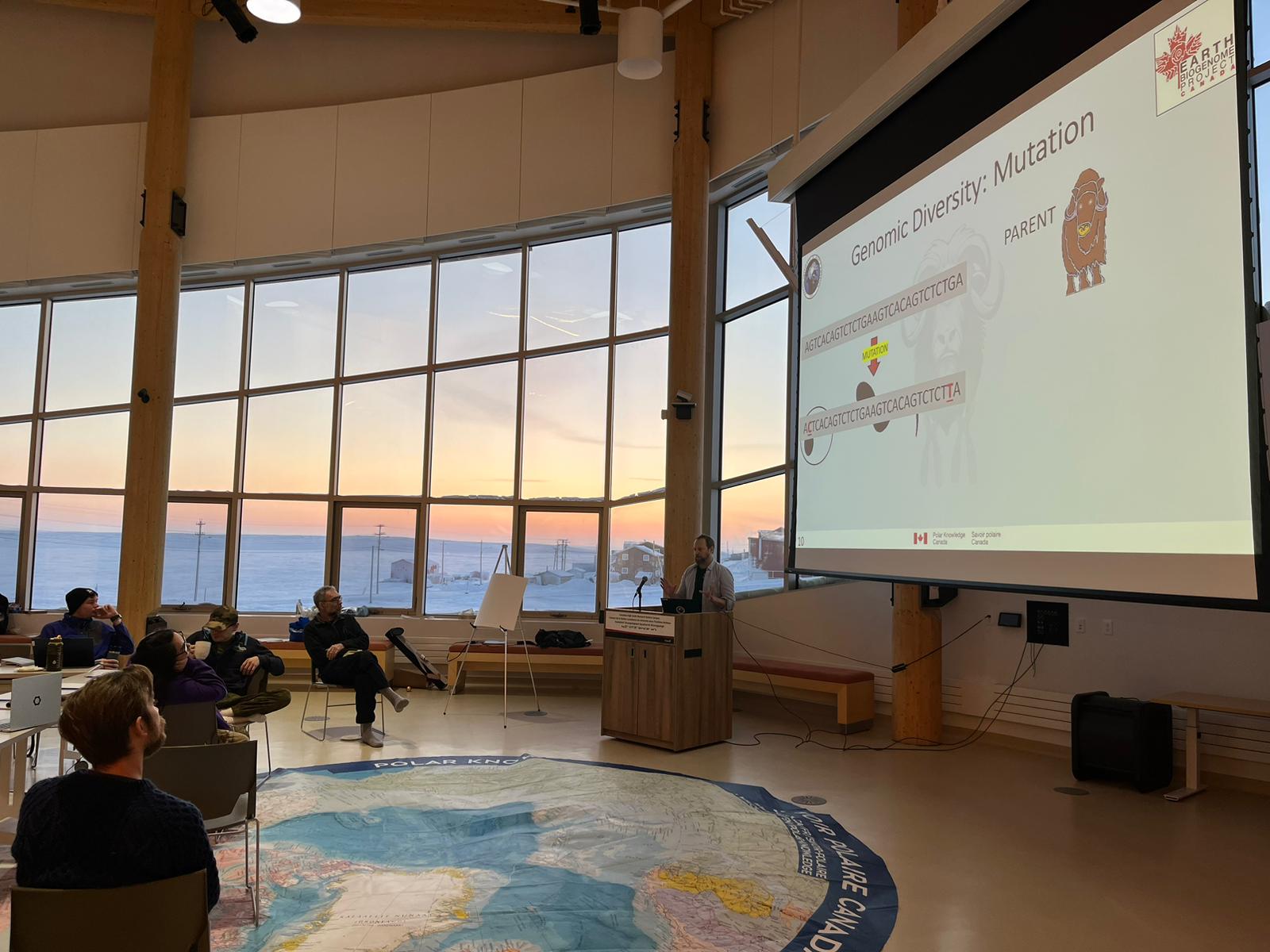
By Steve Crookes, PhD
Muskoxen (Ovibos moschatus, Umingmak in most Inuktitut dialects) are unique animals. It is a highly cold-adapted mammal (sort of an evolutionarily distinct, high arctic ‘goat’) and survivor of numerous interglacial warming periods over hundreds of thousands of years. Canada is home to much of its global distribution, with natural populations distributed in the Northwestern Territories and Nunavut. It is also native to parts of Greenland. Meat and fur (qiviut) provide sustenance and economic input to northern communities, and the muskox represents a vital element in arctic food security and sociocultural life. However, the continuing existence of the muskox is imperiled. Due to a combination of climate change, novel and emerging diseases, encroachment of southern predators (e.g., grizzly bears), and increased rates of parasitism, muskoxen are facing multiple parallel and largely intertwined threats to their continuing existence. Muskoxen populations are starting to dwindle and as yet are unafforded significant protection under Federal legislation.
Stakeholders and Inuit rightsholders need the choice of access to all available tools to help ensure future generations enjoy future interactions with Umingmak. One such tool – broadly - is applied genomics – the science of using DNA sequences to generate biomarkers for DNA-based tool development. Such applications include possibly finding solutions for novel disease and parasite infections and using environmental DNA methods to monitor them. However, western scientific methods need the endorsement of the communities in which muskoxen live. To that end, members of the Arctic Institute of North America, with financial backing from GiSIRT and LSARP, planned and organized a genomics workshop to enable community members and scientists alike to share knowledge and state their concerns or ideas on the possible implementation of DNA-based tools. This workshop entitled ‘Muskoxen and Genomics in the Community’ (MAGIC) was held in Cambridge Bay, Victoria Island, NU, in the second week of January of this year.
A hybrid workshop, the attendees were diverse in both their relationships to muskoxen and in their geography of origin, reflecting the central importance of muskoxen to arctic life. Indigenous elders, hunters and trappers, and office holders of municipalities represented multiple northern communities. Online and in person, we had representatives of various governments both in Canada and the USA, as well as established genomics experts who have worked in the field of arctic mammal genomics, in addition to the field of environmental DNA. Discussions centered on the community importance of muskoxen, what changes to the muskoxen and its environment have been observed in the past couple of generations, which species in the ecological orbit of muskoxen should be considered, and what genomics tools might be best shortlisted for future consideration, as well as what limitations are for any DNA-based tool approach to muskox monitoring?
In closing, the attendees were unified in the opinion that cultural knowledge exchanges such as MAGIC have a pivotal role to play in any serious effort to conserve, protect and manage flora and fauna with deep cultural significance. Primary concerns (e.g., increased predation by bears, increase in possible disease vectors (e.g., ravens, sandhill cranes and geese), and the numbers, distribution and infections of muskoxen and the quality of its meat) were articulated and catalogued. Next steps were discussed to assess each option for applied genomics potential to tackle each of the issues raised, and to expand the species for genomics sequencing to those with a key interaction in contemporary muskoxen ecology. In time it is hoped that there will be a DNA-based toolkit that will contribute to an any future management of muskoxen based on Inuit Qaujimajatuqangit (IQ) principles.
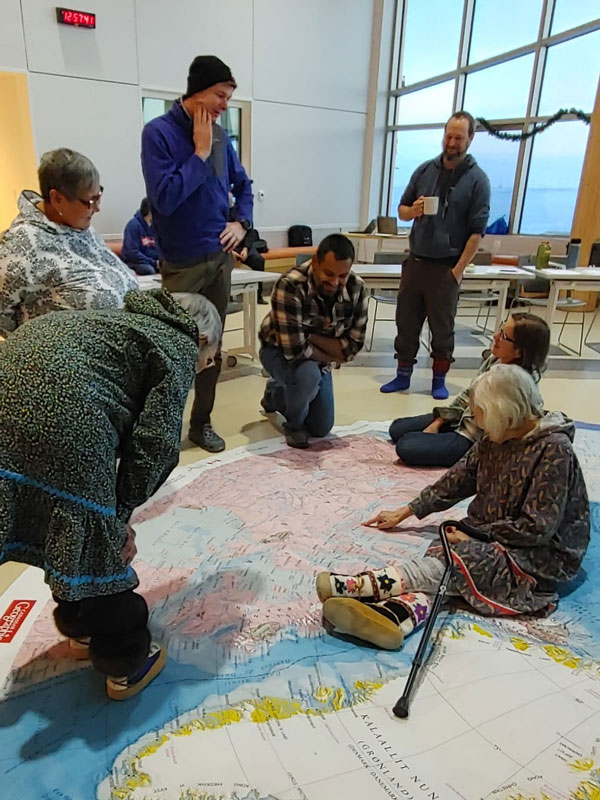
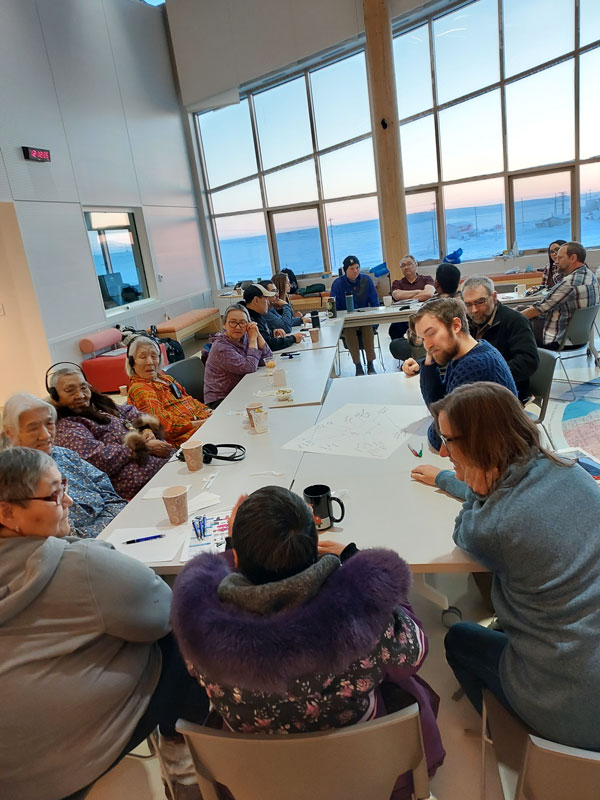
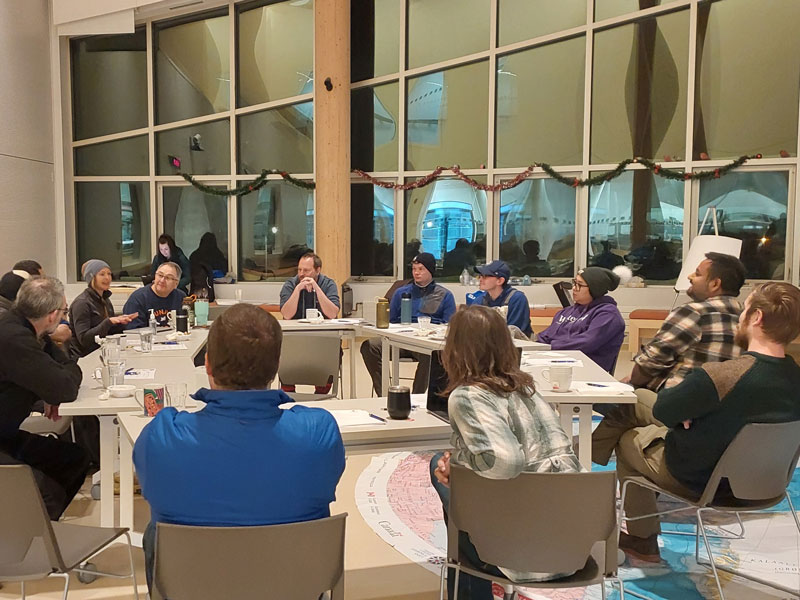
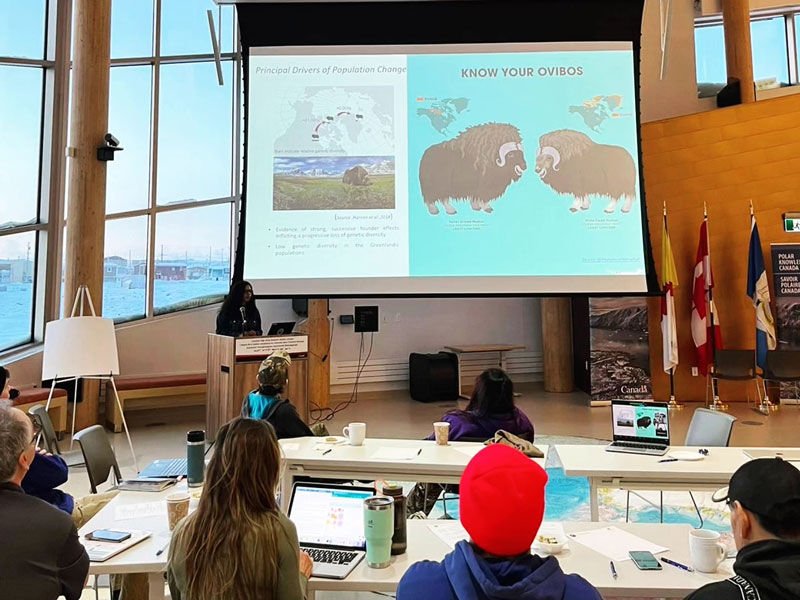
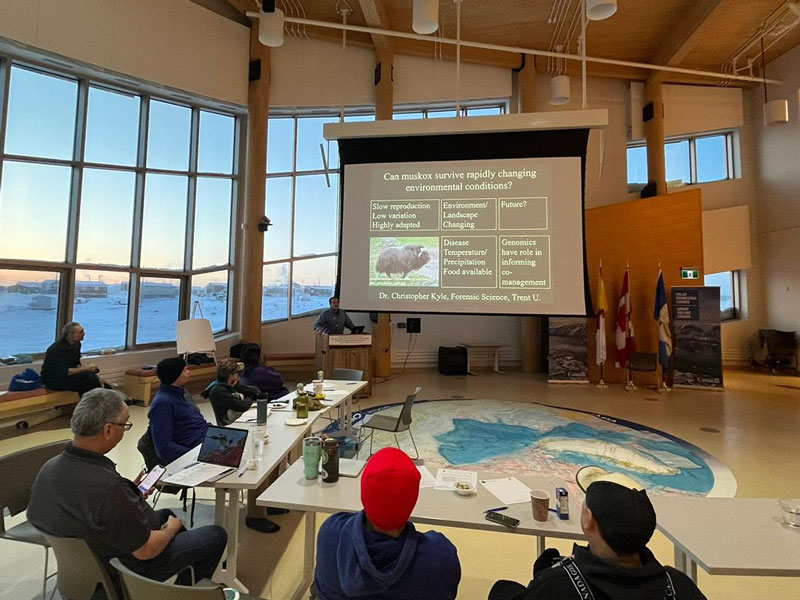
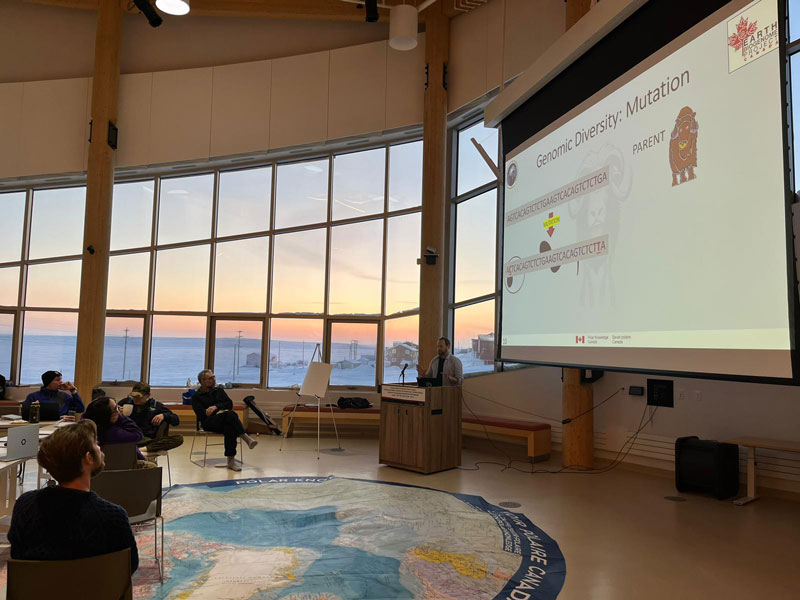
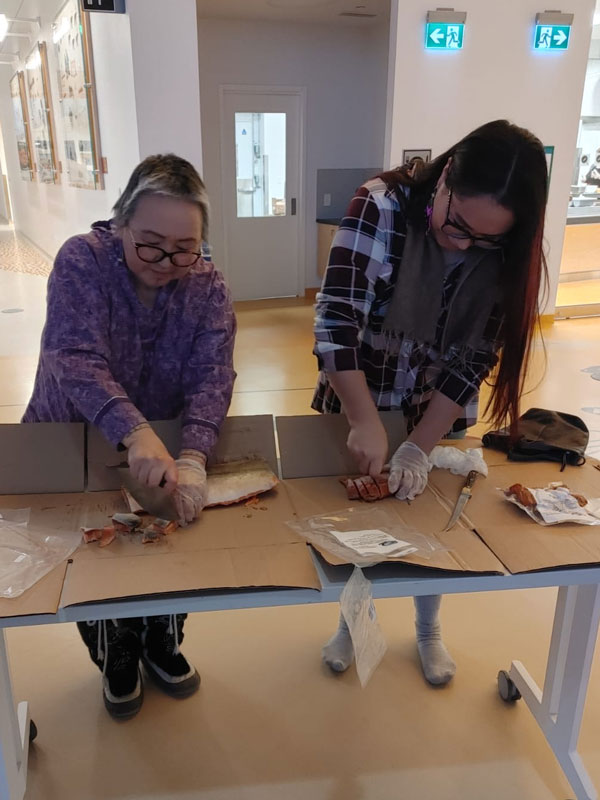
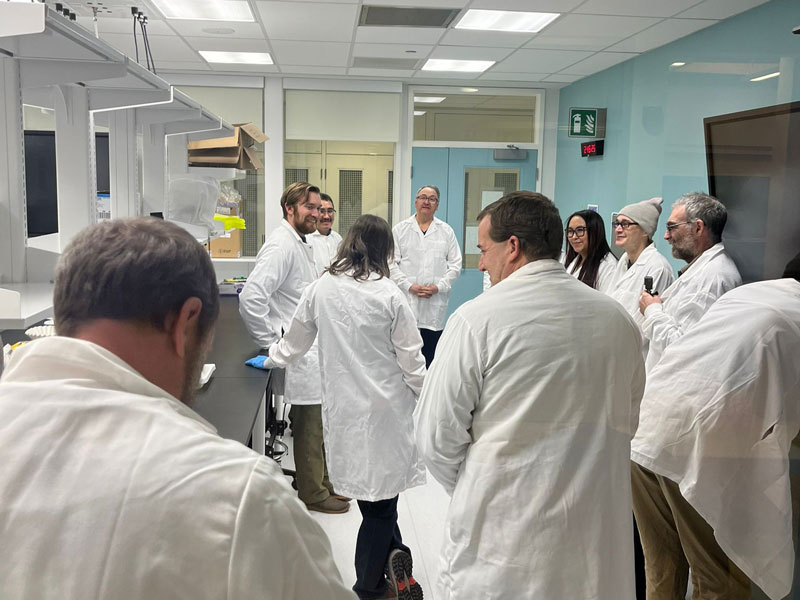
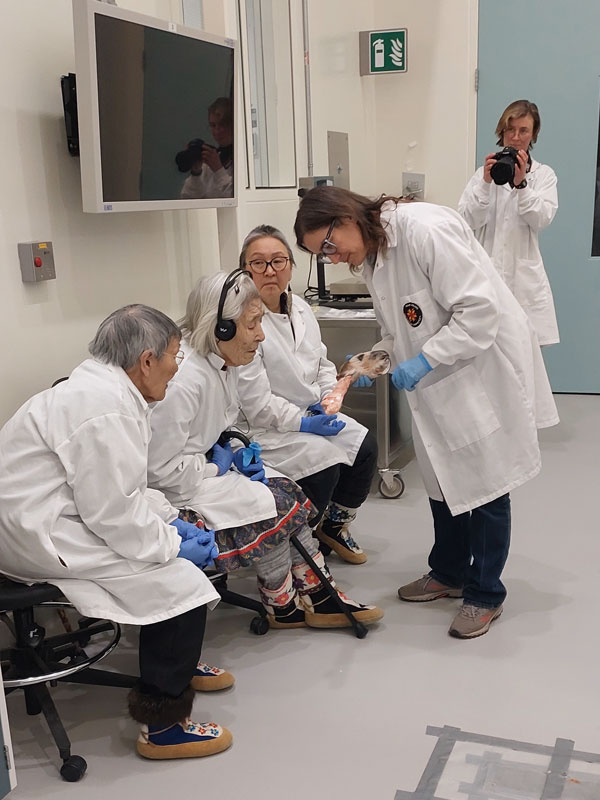
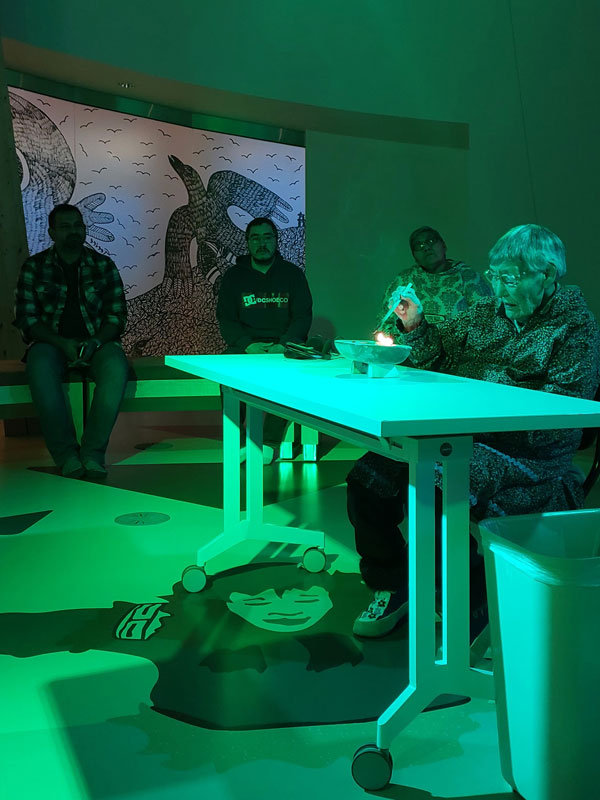
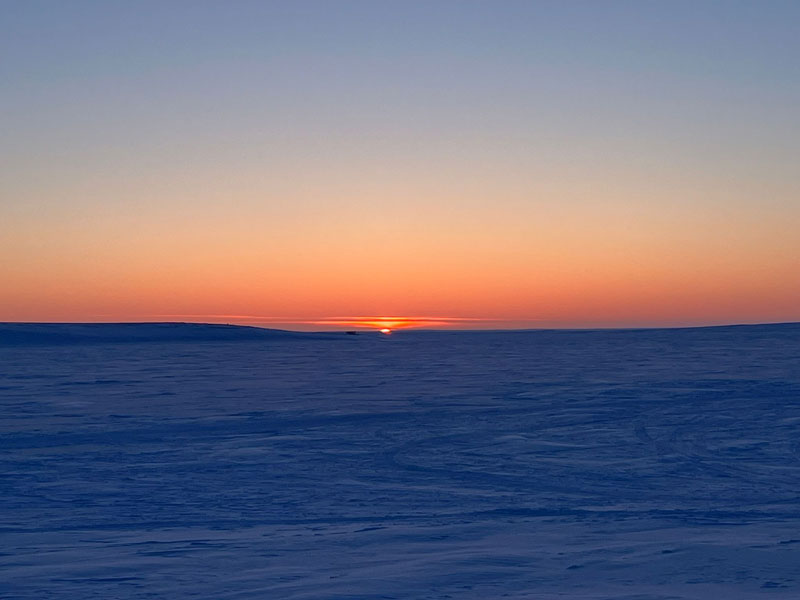
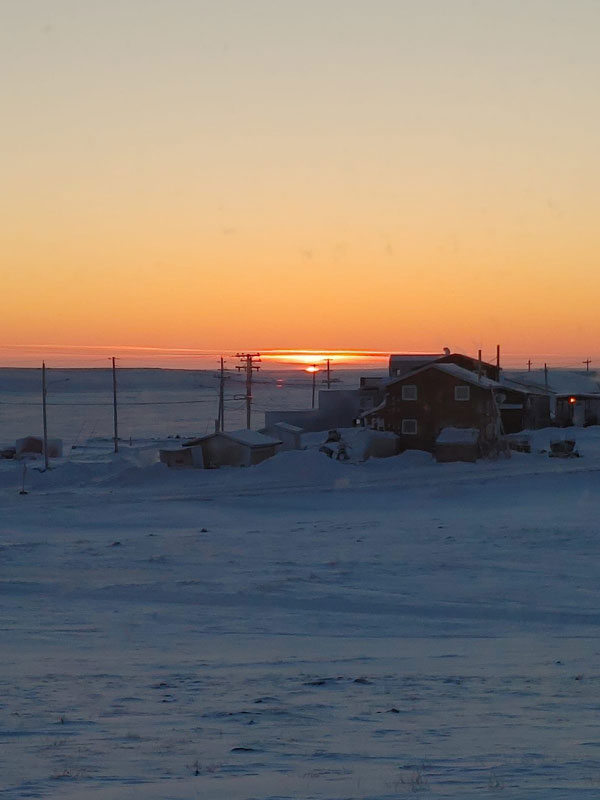
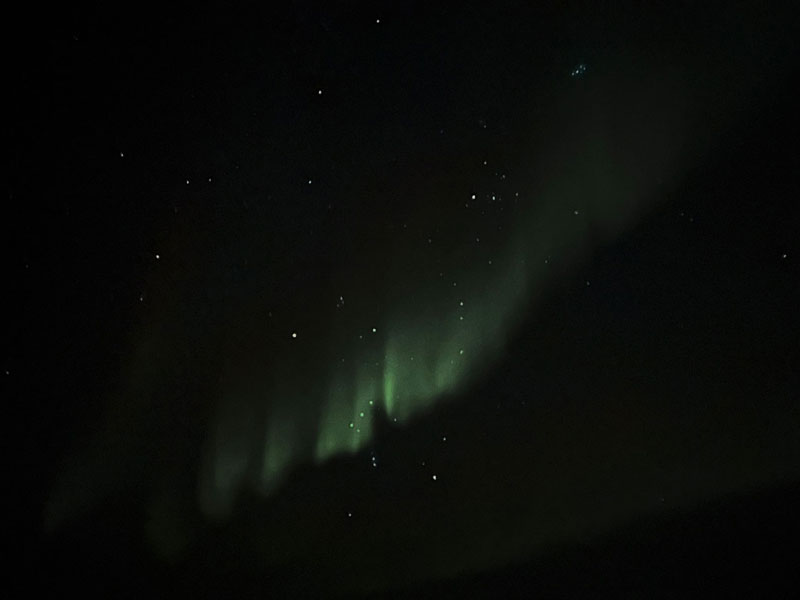
© Arctic Institute of North America | Site & Image Information